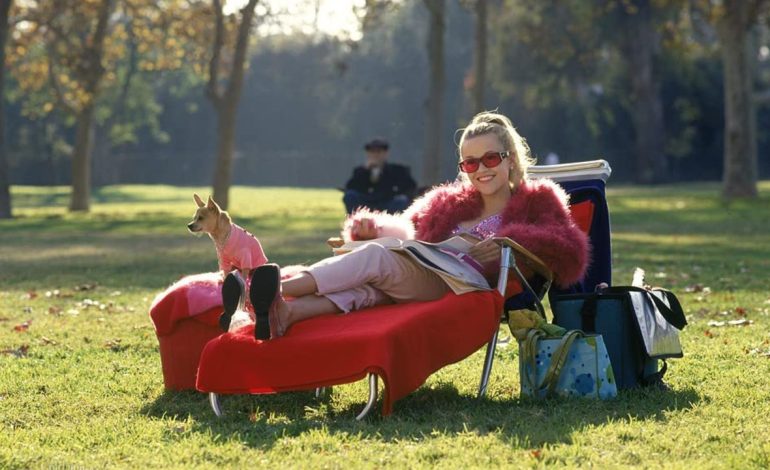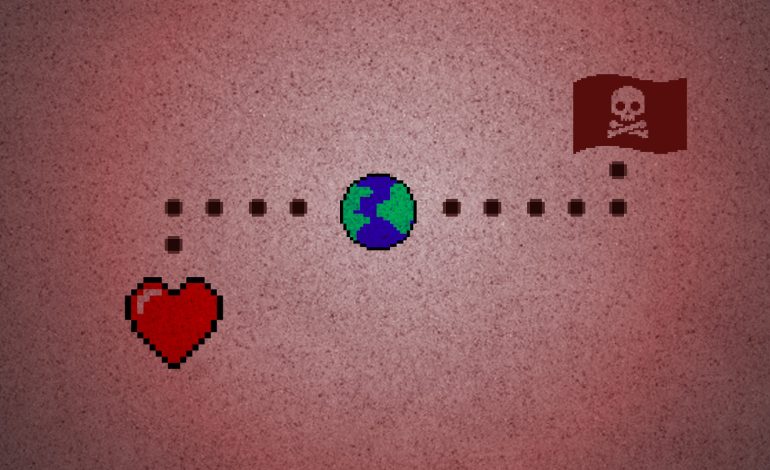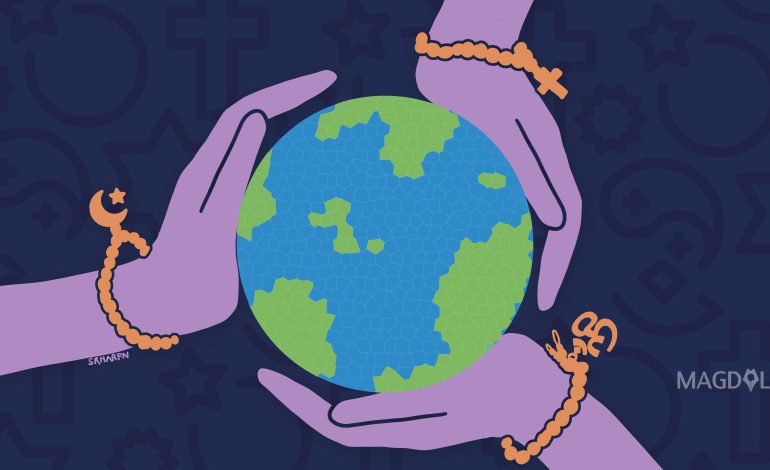The Legacy of Elle Woods: Revisiting ‘Legally Blonde’ on Its 20th Anniversary

One unforgettable, oft-meme-able scene in Legally Blonde that I love so much is when Elle Woods’ despicable ex, Warren, can’t believe that she is also attending Harvard Law just like him, and she responds deftly with, “What, like it’s hard?”
Twenty years later, upon revisiting the movie on its 20th anniversary last week, I still found myself chuckling at Warren’s dumbfounded expression. It’s the scene that pretty much summarizes the whole movie, as well as how patriarchy works.
The whole premise of Legally Blonde sounds simple: Elle Woods, this “superficial fun blonde” decides to enroll in the prestigious Harvard Law School in an effort to be “more serious” and get her ex-boyfriend back. This sounds just like any other cheesy rom-com premise in the 90s and early 00s. But what made this movie different and, therefore, so much better than its peers, is the fact that it’s inherently and unapologetically feminist. It is a movie that makes you realize the damage that patriarchy has caused on women and how they view their worth, but packaged in a fun, breezy comedy that anyone can enjoy.
In Legally Blonde, everyone underestimates Elle Woods and immediately puts her in the “dumb blonde with rich daddy” box simply because of the way she looks and talks. We’re even led to believe that she’s a “blonde ditz who later becomes smart because of Harvard.” But rewatching the movie 20 years later helped me see what I missed the first time around: my own internalized misogyny.
I, too, just like every character in the movie (well, maybe except for Emmett, but he’s kind of forgettable), completely missed how smart, savvy, kind, and well-rounded young woman Elle really is, because I got distracted by her hair, fashion, and the way she talked. I missed the fact that she graduates with a 4.0 GPA. I didn’t even realize that she scores 179 on her LSAT, only 1 point below the highest score. Nope, I saw her carry her small pup everywhere in a purse and immediately judged her – even as I was rooting for her.
Also read: You Think I’m ‘Not Like Other Girls’? Wrong. I’m Offended
Internalized Patriarchy and How It Divides Women
I think that’s the crazy thing about patriarchy. We all have these biases about other women. When Elle attends to Harvard Law, it isn’t like she was surrounded by prim and proper conservatives. She is amongst feminists and intellectuals, women who pride on championing equality and are against patriarchy. One character even suggests the word semester should be changed because it came from a toxic, masculine culture. But that very same character looks down on Elle and doesn’t even bother to hear anything she has to say simply because she is girly, blonde, and seemingly “superficial.” Whatever happens to #womensupportingwomen, am I right?
But if we are to be honest, we do the same thing all the time. We put other women down and call them dumb simply because of the way they talk, or maybe because they like things that we deem stupid. When the BTS Meal was launched and caused quite a pandemonium, I read comments all over Instagram that made fun of the BTS Army (consisting mostly of women and teen girls). They could get creative with the insults, but I could summarize them all in this one sentence: “Girls who like boybands are shallow and stupid.” And the ones saying this weren’t just men. In fact, some of the most scathing comments I read on the subject came from women.
It was interesting how those comments from women also have one common theme: “I don’t get why BTS is such a big deal. I know they’re popular and all but I don’t listen to that kind of music. I guess I’m not like other girls.” If you are active in social media, you may have noticed the rise of the “I’m-not-like-other-girls” girls and the “pick-me” girls as of late. It’s this toxic, misogynistic trend that basically has women demean other women and their interests in an effort to stand out and make themselves look different and, thereby, better.
Just like those girls in Harvard Law who think they are better than Elle because they talk about “serious things” and dress a certain way and do not like “superficial things” like celebrity gossip and manicures, the “I’m not like other girls” girls or “pick-me” girls of the internet now want to be thought of as better than other girls. But why?
Those girls at Harvard Law who look down on Elle are not any better than her (or even smarter, for that matter). They just have different interests. Why are we raised with the belief that because patriarchy doesn’t approve of our interests – such as boybands, fashion, and celebrities – and view them as frivolous, that means those interests are inherently stupid and superficial? And why is it that the only way we women can be taken seriously is if we have loftier interests in a field that is mostly dominated by men?
In another iconic movie of the 00s, The Devil Wears Prada, Anne Hathaway’s character Andie starts off looking down at her job in a fashion magazine and at the fashion industry in general because she deems it superficial and frivolous. She has initially thought she was better than those other women who actually would kill to get a job at Runway Magazine because she wanted to be a “serious journalist”. But Meryl Streep’s character Miranda Priestly rightfully points out that even the industry that Andie deems “frivolous” represents millions of dollars and countless jobs, and that even when she thinks she doesn’t care about fashion, she is still a part of it.
Patriarchy would have us believe that women need to be a certain way, dress a certain way, talk a certain way, behave a certain way, and even have a certain kind of career or interest in order to be taken seriously and be treated with respect. Patriarchy judges women harshly and somehow their actual worth keeps diminishing when they do not meet certain “requirements.”
But respect is not something anyone – woman or man, rich or poor, educated or uneducated – needs to “earn”. We have to treat everyone with dignity and respect regardless of their gender, status, or background. And just because we seem “frivolous” or like “silly things”, doesn’t mean we’re less worthy or less deserving of respect. What counts as frivolous and silly anyway? Who gets to decide?
Also read: On Misogyny: A Challenge to Men
One Woman is “Better” Than The Other
When Elle’s bonehead boyfriend Warren dumps her, he tells her that in order for him to be a senator before he turns 30, he needs to marry a Jackie, not a Marilyn. Jackie Kennedy-Onassis has always been seen as the picture of elegance compared to the “frivolous” Marilyn, the ditzy blonde who is good for fun and nothing else. But did you know that Marilyn Monroe actually had an IQ of 168? Higher than Albert Einstein and Stephen Hawking? Had Marilyn been a man, would she have been reduced to a blonde ditz and thought of as so unworthy of actual “respect”? I doubt it.
That’s what patriarchy does. It puts the Jackies of the world against the Marilyns, when one is not better than the other. They’re just two different types of women. In the eyes of society someone like Elle Woods can’t possibly be smart. She’s too blonde, she squeals a lot, she loves glittery fashion, she writes with cutesy little stationery, she wears fake glasses to appear serious, she was in a sorority, she loves getting manicures, she carries around her chihuahua in her purse, she’s too girly and fun and definitely not at all studious or bookish or has lofty interests. Therefore, she can’t actually be intelligent, capable of critical thinking, savvy, or resourceful, unlike Warren’s new fiancee Vivian. But as we see in the end, they’re really not that different. They’re both two smart, capable women, and they are stronger and better as allies than enemies.
To this day, 20 years after the first Legally Blonde movie came out, we are still being divided and stripped of our nuance as women. But if the legacy of Elle Woods has taught us anything, it is that we don’t really have to change ourselves to fit the narrative created by patriarchy. We don’t have to play along.
When patriarchy tries to divide us and pit us against each other, don’t let it. Appreciate the differences, cherish them. Don’t alienate other women who do not look, sound, think, or talk like you, don’t judge and put them down just because they may not share your beliefs or worldviews. Take the time to get to know them, even if you don’t agree with them.
Patriarchy would love to see us take each other down, so we need to raise each other up. That’s the only way we can dismantle this oppressive system. And for those who say that’s impossible to do, you know what to tell them.
“What, like it’s hard?”






















